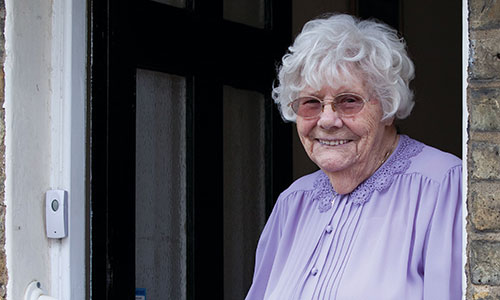In July, the Government announced that it was going to look at how private landlords could be encouraged to offer longer tenancies. It has received over 8,000 responses to its consultation paper.
Having to move home can be expensive and difficult for all age groups but is a particular issue for vulnerable older people. An increase in the proportion of older tenants means that longer tenancies are key to making the private rented sector work for them. Most private renters today have ‘assured shorthold tenancies’, which are typically granted for six months or a year and offer very little security after that point.
Some older renters are housebound, spend a great deal of time in and around their home and often rely on a network of social and family connections for support. Moving frequently reduces those bonds of community and risks breaking ties with vital local services such as GPs and hospital clinics. The possibility of being forced to move can cause real anxiety and private renters are 2.5 times more likely to report feelings of extreme loneliness than groups in other types of accommodation.
Often minor adaptions to a home can help older people to continue living independently and transform the quality of their daily life. Making these adaptations can be difficult in private rented accommodation and, if there is always a sense that a move is imminent, tenants tend to put off any work. A report from Foundations, the coordinating body for home improvement agencies, highlighted that adaptations to the home delay entry to residential care by four years.
The Government has increased funding for the Disabled Facilities Grant, which funds home adaptations, to £500m for 2019/2020 – with an additional £55m for 2018/19 recently announced in the Budget. However, the grant requires applicants to prove that they are going to be remaining in their property for 5 years. This isn’t possible for the vast majority of private renters, so take up in the sector is low. Falls that can be avoided and reduced independence increase the burden on social services.
So, security of tenure is key to ageing well. Knowing that you can stay in your home until you want to move changes the way older people can live. It allows them to establish a support structure, treat their rental property as a home and gives them the ability to challenge their landlord about its condition if necessary, without fear of retaliatory eviction.
The Government’s consultation suggests a three-year model tenancy with an initial six-month break clause as a basis for discussion. Although three year tenancies would represent progress they do not give older renters the long-term protection they need. Scotland has introduced indefinite tenancies and it will be interesting to see the wider implications of this change. With increasing numbers of older people living in the private rented sector and with a worrying rise in homelessness amongst older people, we urgently need more imaginative approaches to housing which give older renters long term stability, a sense of security and belonging. Many older tenants are unlikely to make the transition to home ownership and we need to find ways of delivering settled accommodation that meets people’s changing requirements as they age.
Age UK and Age UK London are working jointly to seek reform of the private rented sector for the benefit of older renters. You can read our response to the Government consultation here.
Author
This article was written by Lisabel Miles, volunteer with Age UK London.





